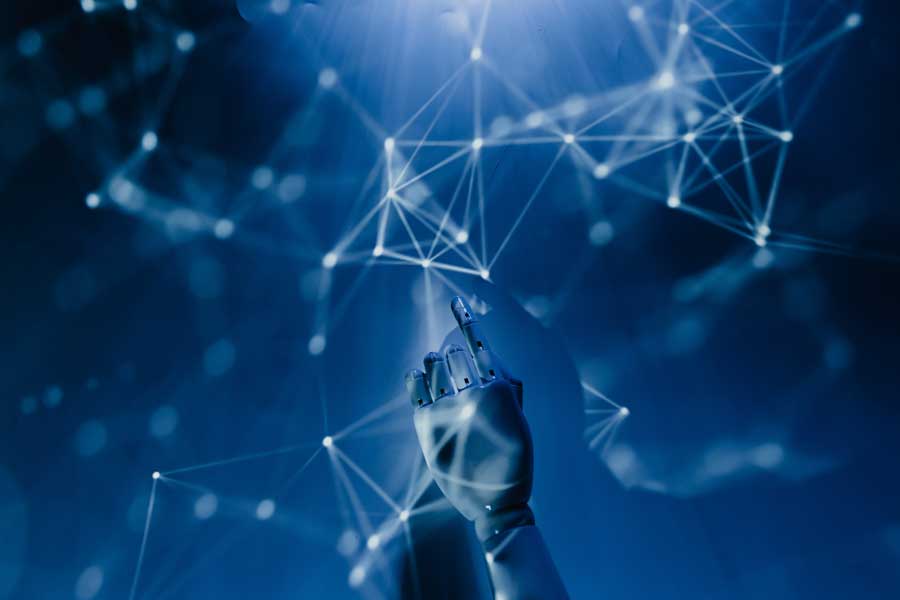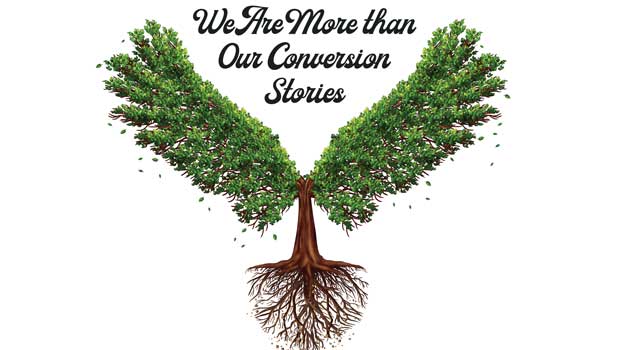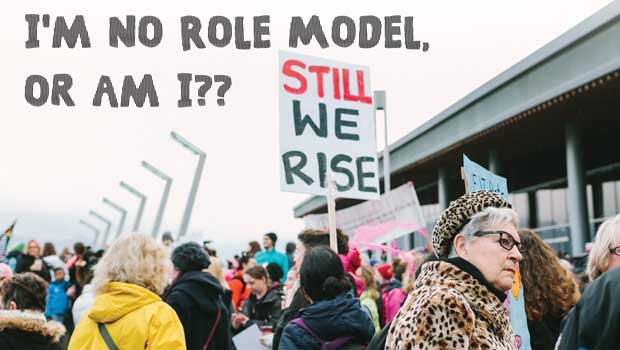Part 1 of this article presented an overview of artificial intelligence and its potential for good, with some mention of its potential harms. As to its potential good, we should remember that Allah, in the Holy Qur’an, repeatedly emphasizes the importance of acquiring knowledge and understanding the magnificent creation and the purpose of life. The Qur’an mentions various engineering technologies of ancient times such as body armor as taught by Allah (21:80) to Prophet Dawood (a.s.), dams as inspired by the mercy of Allah to Dhu’l Qarnayn (18:98), and boats, as Prophet Nuh (a.s.) was instructed by Allah to build one under His observation and inspiration (11:37). These technical skills were used for the purposes set forth by Allah. Therefore, there shouldn’t be hesitation in utilizing AI and other scientific advancements as long as they do not contradict with the Qur’an and Sunnah but instead fulfil the purpose of life as designated and detailed by Allah SWT.
It is thus not useful to debate the permissibility of the AI technologies, but rather to focus on how we can use them for the betterment of humanity while adhering to the principles of Islam. While it is true that AI would replace a vast number of jobs, it would also bring countless benefits in all fields. Throughout history, we have seen innovations such as the wheel, steam engine, electricity, and computer technology transforming our world. While computer technology, for example, displaced many workers, it created many more opportunities and millions of previously unknown jobs in software engineering, information processing, communications, data analytics etc. Essentially, it’s now accepted that computer technologies are an integral part of most businesses in the West as they rely on computers for communications, marketing, data management, etc.
Extending these capacities, AI can automate repetitive tasks, enabling us to focus on more complex work to increase productivity. It can also analyze vast amounts of data to provide insights that humans may not be able to identify and can lead to faster and better decision-making. In healthcare, for example, doctors can be aided with AI technologies to diagnose and treat diseases more accurately and efficiently. AI can help protect workers doing hazardous jobs such as working in mines, on oil rigs, or in chemical plants. It can also be used to mitigate the effects of natural disasters with early warning systems, disaster response planning, analysis and optimization of evacuation routes, etc. These are just a few of countless examples. Overall, rather than fearing AI, we should embrace its potential to push the bounds of knowledge and technology to improve our lives.
That being said, there are multiple warnings from industry leaders about the rapid pace at which AI is developing and the need to put some controls in place. The power and impact of AI on society are significant and could potentially have a devastating impact on humanity if we are not careful and prudent. It is now front and center on the list of other threats faced by humanity — nuclear weapons, genetic engineering, bioengineering, climate change, etc.
The threat of AI is real and paramount. In March, tech industry leaders, professors, and scientists, including Steve Wozniak and Elon Musk, wrote an open letter calling on “all AI labs to immediately pause for at least 6 months the training of AI systems more powerful than GPT-4.” Currently the letter has more than 27,000 signatures. The letter says, in part, “As stated in the widely-endorsed Asilomar AI Principles, Advanced AI could represent a profound change in the history of life on Earth, and should be planned for and managed with commensurate care and resources. Unfortunately, this level of planning and management is not happening, even though recent months have seen AI labs locked in an out-of-control race to develop and deploy ever more powerful digital minds that no one – not even their creators – can understand, predict, or reliably control.”
Some potential risks involving the advancement of AI include the following:
• An unprecedented level of job loss in a short period of time: an article at Business Insider lists 10 areas where AI might replace humans: “tech jobs (coders, computer programmers, software engineers, data analysts); media jobs (advertising, content creation, technical writing, journalism); legal industry jobs (paralegals, legal assistants); market research analysts; teachers; finance jobs (financial analysts, personal financial advisors); [Wall Street] traders; graphic designers; accountants; customer service agents.” AI can replace routine, repeatable, and even many creative jobs, potentially causing a collapse of the socio-economic structure as the encroachment by AI will happen faster than human ability to learn new skills and adapt.
• Economic disparities could increase: linked to job displacement is the possibility that use of AI could widen the gap between rich and poor. Lawrence Katz, a labor economist at Harvard, is worried about AI’s effects on income inequality. “It’s likely to continue to reduce labor’s share of income as many tasks get automated,” he said.
• Negative effects on physical and mental health: as jobs are displaced and the use of AI permeates lives in countless ways, human beings may experience stress and uncertainty. The rapidity and magnitude of change can cause or exacerbate physical and mental health issues. Additionally, the use of AI-powered machines for physical labor can lead to a more sedentary lifestyle for individuals displaced from those jobs, also having a negative effect on physical and mental health.
• The threat to privacy rights and personal autonomy: Dr. Mark van Rijmenam cautions, “AI presents a challenge to the privacy of individuals and organisations because of the complexity of the algorithms used in AI systems. As AI becomes more advanced, it can make decisions based on subtle patterns in data that are difficult for humans to discern. This means that individuals may not even be aware that their personal data is being used to make decisions that affect them.” Deepfakes (images, audio, and video content) created by hoaxers, exploiters, and mischief-makers using AI is another emerging area of concern, challenging not only privacy but also personal autonomy.
• The use of AI in military operations: this could potentially lead to out-of-control situations where machines powered by AI make life-or-death decisions at lightning speed without human oversight or ability to intervene. Other risks involving the use of AI in the military include accidental errors, vulnerability to hacking, escalation of hostilities, and violations of international law.
How Can We Prepare?
The question we should be asking ourselves is this: How do we prepare for the enormous power that AI brings to humanity? There’s no escape from the ongoing advancement of this technology, even if we wanted to. If we’re not ready for it, we risk a lot of trouble ahead. Here are some ideas on how we can prepare for the Fourth Industrial Revolution:
• To remain relevant in the modern world, it’s crucial to invest in educating individuals across the Muslim ummah in disciplines such as mathematics, biology, physics, electrical and computer engineering, psychology, philosophy, and economics.
• AI’s unprecedented rate of advancement will hardly leave any profession “safe” from its grab. To remain competitive, it’s important to have a smarter approach to jobs and professions than simply mimicking mechanical steps. Instead, one should strive to gain a solid conceptual understanding of the foundation of their field and its interconnections with other disciplines. As stated in an article in startupgrind, it is important to “develop critical thinking skills, interpersonal skills, emotional intelligence, and the ability to link disparate fields to find creative solutions to complex problems. Interdisciplinary knowledge will become more vital to viability.”
• In the Fourth Industrial Revolution, experts in AI will be in high demand. By cultivating a pool of Muslim AI experts, we can ensure that the ummah is well-prepared to navigate the challenges and opportunities presented by this rapidly evolving field. Muslim AI experts can also bring to the table, or at least add their weight to the position and conviction that AI must be handled in the most moral and ethical way, and for the common good.
• To promote the moral and ethical usage of AI and guard against its abuse, we must engage with civic and political institutions to establish norms and legislation. Although not perfect, the International Atomic Energy Agency (IAEA) provides an example of how we can contain disasters through international agreements. We should follow this model to create an international agreement for the responsible use of AI, preventing any uncontrolled and damaging outcomes.
While it may seem daunting to compete against such advanced technology as artificial intelligence, humans have demonstrated remarkable adaptability and ability to adjust to new technologies throughout history. We are capable of creating and controlling technology that enhances our lives and makes work more efficient.
AI presents real risks that we cannot ignore. As khalifa, or guardian, on this Earth, humans are responsible for taking care of the Earth, the world and all its creatures, and humanity. This responsibility includes approaching the development and deployment of AI in a responsible and cautious manner, with a focus on minimizing its potential negative impacts on society. We must be mindful of our accountability and ready to stand in front of Allah and answer to Him for how we have cared for the Earth.
Artificial intelligence, no matter how advanced its intelligence might become, it cannot replace humanity. Allah SWT created humans with spirit and heart, intelligence and sentience. This complexity, this miracle of consciousness and self-awareness cannot be created by humans in AI. Allah SWT tells us in the Qur’an, “It is He who brought you forth from the wombs of your mothers when you knew nothing; and He gave you hearing and sight and intelligence and affections that you might give thanks” (16:78).






